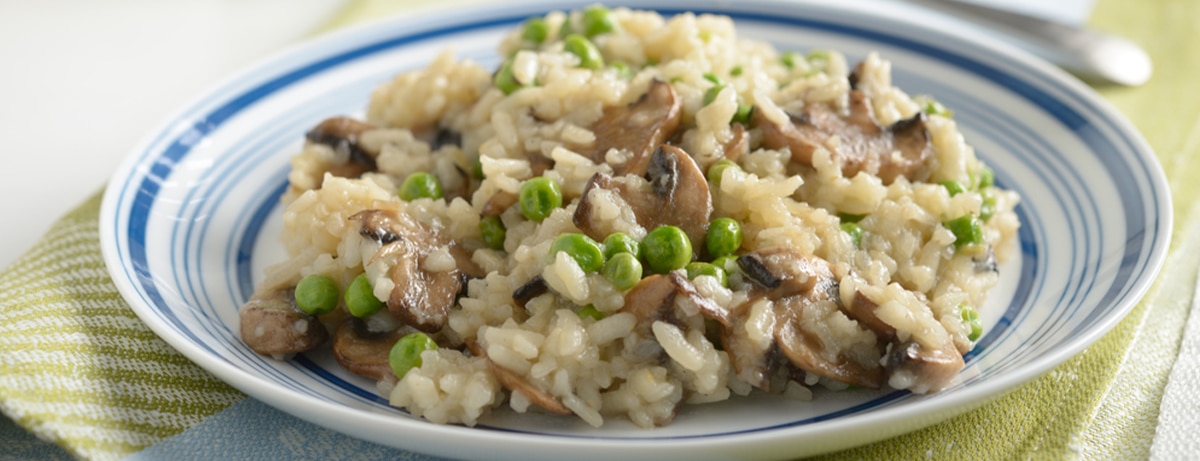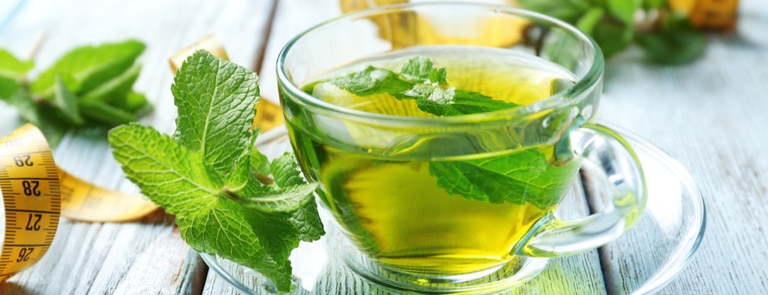20% off £30
9 of the best vegan cheese alternatives
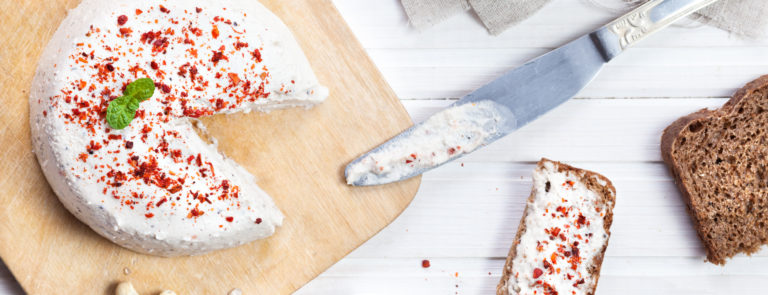
Who said vegans can’t eat cheese? They just can’t eat dairy cheese, that’s all.
Cheese is traditionally made with milk from cows, goats or sheep and is therefore unsuitable for anyone who wants to avoid animal products in their diet.
And yet cheese is often something that people say they miss once they go vegan.
The Vegan Society estimated that there were around 600,000 vegans in the UK in 2018, which is three and half times the numbers in 2006, making it one of the fastest growing lifestyle movements.1
Food producers and manufacturers have responded well to this growing trend.
And there are now more vegan options available in our shops and supermarkets than ever before, with more and more new alternatives popping up each week.
Fortunately for cheese lovers, this also includes some wonderful alternatives to cheese.
In this article, you’ll discover
- What vegan cheese is
- How it’s made
- What it’s made of
- What it tastes like
- 9 of the best vegan cheese alternatives
- How to make vegan cheese
- If vegan cheese is healthy
- The best vegan cheese brands
- Where to buy vegan cheese
What is vegan cheese?
Vegan cheeses are alternatives to dairy cheese, which are made without dairy and are 100% plant based.
Many different types of vegan cheese have become available in recent years, with the rise in popularity of the vegan diet.
Now you can get everything from soft, spreadable cheeses to hard grating cheeses and even alternatives to popular options such as halloumi.
How is vegan cheese made?
Vegan cheeses are made using vegetable proteins such as soy, nuts like cashews and macadamias and vegetable oils like coconut oil.
They are created using some similar processes to that employed in the production of regular cheese.2
Essentially, it’s produced by taking the plant source, e.g. the cashew nuts or the tapioca, and combining it with lactic bacteria, as well as oils, emulsifiers and thickening agents (the latter tends to be used to create a firmer end product).
Early vegan cheese production involved using lots of different ingredients to get the taste and texture more cheese-like.
However, processes have evolved and tend to involve just nut milks, enzymes and salt, as well as traditional cheese ageing and bacterial culturing methods.3
What is vegan cheese made of?
Non-vegan cheese comes from cows, goats or sheep milk.
Meanwhile, vegan cheese is a plant-based product made from vegetable proteins, including soy and cashew nuts or vegetable oils, such as coconut oil.
It’s not uncommon for vegan cheese to be made from food sources, such as tapioca, peas and arrowroot either.4
What does vegan cheese taste like?
Well, it’s a common fact vegan cheese doesn’t melt like dairy cheese does.5
Meanwhile, vegan cheese manufacturers are working hard to produce cheese substitutes that rival dairy cheese in the taste and texture stakes.
However, it’s worth noting here that because ‘real’ and vegan cheese involve very different ingredients, and vegan cheese doesn’t contain curd, which gives dairy cheese its unique flavour, it’s not possible to produce exactly the same thing.6
But it hasn’t stopped vegan cheese manufacturers from continuing to review and refine their products to achieve dairy-free cheese perfection.
Which are the best vegan cheeses?
Here is our round up of the best vegan cheese products on the market to make sure you do not miss out on that oozy cheesy goodness!
Whether you’re already vegan or you are looking to cut down your consumption of animal products, you will be crackers about these dairy free cheeses:
-
Engevita Yeast Flakes
Made from primary inactive yeast, yeast flakes have a cheesy nutty flavour and can be used in place of parmesan on pasta dishes.
They can even be used to make a lactose-free cheese sauce for use in lasagne, mac and cheese, or as a dip for tortilla chips.
-
Koko Cheddar Cheese
Koko Cheddar Cheese Alternative is deliciously mellow and contains added calcium and vitamins D2 and B12.
It goes great in a sandwich, as part of an antipasti platter and as an ingredient in savoury cooking.
-
Asda Free From Mature Cheddar Alternative
If you like a bit of a stronger flavour, try Asda’s Free From Mature Cheddar Alternative.
It has a crumbly texture which resembles the dairy mature cheddar and a balanced, salty taste. Absolutely ideal for cheese on toast,it melts well and has a mild, slightly tangy flavour.7
Melting can often be an issue when it comes to vegan cheeses, as they often do not mimic dairy cheeses, so this is perfect for popping on pizzas or eating in a toastie.
-
Creamy Sheese Original
Creamy Sheese Original is a dairy free vegan cream cheese alternative that is made with coconut oil.
It is suitable for vegans as well as being Kosher. This versatile spread can be used in lots of ways to add flavour.
Use for making vegan cheesecakes, in pasta dishes or as a topping for baked potatoes.
Or just get it straight from the fridge and spread onto crackers, pitta bread or bagels.
-
Creamy Sheese Garlic and Herb
Sheese also comes in a garlic and herb variety if you like your cream cheese with a little bit more flavour.
-
Sheese Red Leicester Style
A favourite cheese amongst many, Sheese Red Leicester Style has a lovely deep orange colour and a medium strength.
Try it sliced on toast for breakfast or lunch, add to enchiladas or grate onto the top of a dairy free pizza.
-
Bosnan Organic Almond Crème Wild Garlic Cheese
Bonsan Organic Almond Crème Wild Garlic is made using almond flour and is a great alternative for a cheesy dip or cream cheese spread.
Dip chopped veggies and tortilla chips into it for the ultimate vegan party snack.
-
Violife Non-Dairy Cheese Alternative
Violife Non-Dairy Cheese Alternative is made with coconut oil and vitamin B12 and is firm and rubbery in appearance, just like halloumi.
The flavour is similar to halloumi, with a nice salty kick.
-
MozzaRisella Classic 200g
If you miss the tantalising taste of mozzarella, look no further than the MozzaRisella Classic. Used in popular restaurants like Pizza Express and Zizzi, this is the best vegan cheese for pizza to create that stringy, melty texture just like the real deal.
Make your own vegan cheese spread
If none of these vegan cheese alternatives take your fancy, then why not make your own?
You can easily whip up a DIY vegan cheese spread in just five minutes using cashew nuts, nutritional yeast, lemon juice, garlic powder and salt and pepper.
Perfect for spreading on crackers for a snack or a light lunch.
How to make vegan cheese
Below are top ways that you can make your own vegan cheese
-
Vegan mac and cheese
Ingredients
- 360g peeled, chopped potatoes
- 135g peeled, chopped carrots
- 85ml extra virgin olive oil
- 125ml unsweetened plant milk
- 8 tbsp nutritional yeast
- 1 tbsp lemon juice
- 1 tsp salt
- 1/2 tsp garlic powder
- 1/2 tsp onion powder
How to make vegan mac and cheese
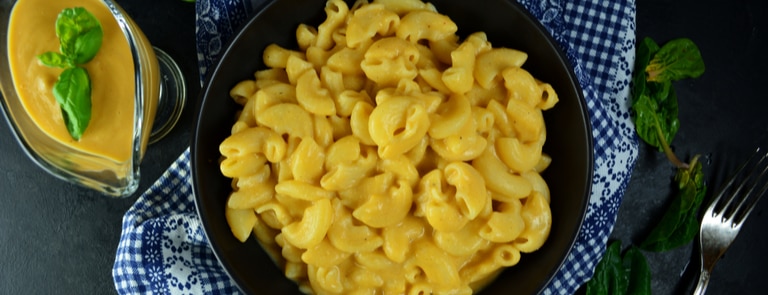
1
Boil the potatoes and carrots in a pan until soft.
2
In the meantime, cook the pasta, drain and set it to one side.
3
Pop all of the ingredients into a blender and blend until smooth.
4
Combine the pasta and blender ingredients and serve.8
-
Vegan parmesan cheese
Ingredients
- 3/4 cup raw cashews
- 3 tbsp nutritional yeast
- 3/4 tsp sea salt
- 1/4 tsp garlic powder
How to make vegan parmesan cheese
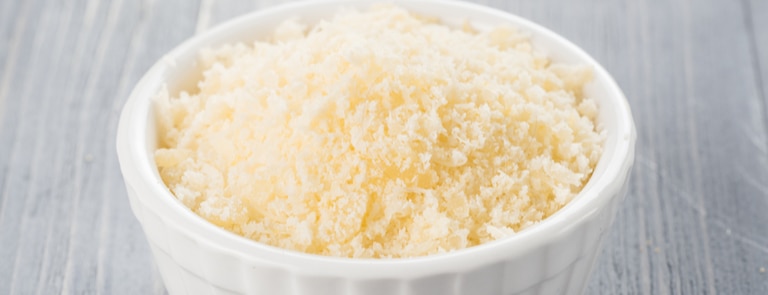
1
Put everything into a food processor and blend until fine.
2
Keep in the fridge to keep it fresh!9
-
Cashew cream cheese
Ingredients
- 250g cashews
- 2 tbsp nutritional yeast
- Juice from 1 lemon
- Chopped chives (optional)
How to make cashew cream cheese
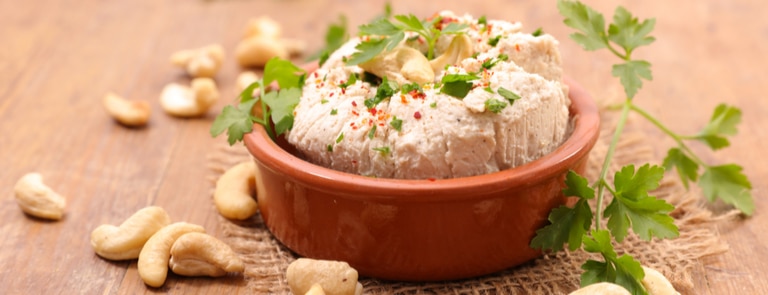
1
Put the cashews in a bowl, cover with water, wrap the bowl with cling film and leave to soak for four hours or overnight.
2
Drain the cashews, put them in a food processor with the nutritional yeast, lemon juice, salt and water. Blend until smooth.
3
Put the cashew cheese into a different dish or bowl and stir through the chives. Put in the fridge and consume within three to four days.10
-
Garlic and herb vegan cheese
Ingredients
- 2 cups raw cashews
- 2 cloves garlic, minced
- 1/2 tsp garlic powder (plus more to taste)
- 1 medium lemon, zested
- 1/4 cup lemon juice
- ½ to ¾ cup water
- 2 tbsp nutritional yeast
- ½ tsp sea salt
- 2 tbsp olive oil
How to make garlic and herb vegan cheese
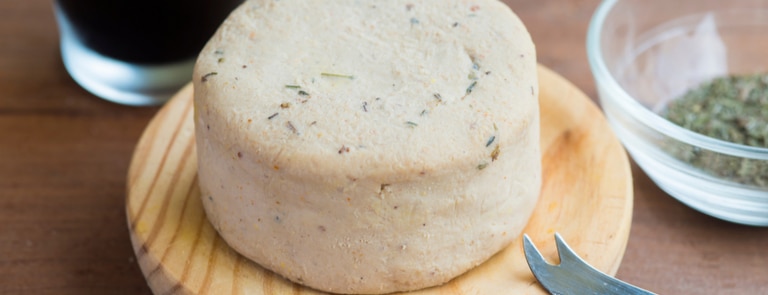
1
Put the cashews in a bowl and cover with cool water. Cover with cling film and leave in the fridge for 12 hours.
2
Drain the cashews and put them in a food processor with the minced garlic, garlic powder, lemon zest, lemon juice, water, nutritional yeast, salt and olive oil.
3
Blend until smooth.
4
Place a strainer/colander over a large mixing bowl and layer it with two layers of cheesecloth (or a clean, fine, absorbent towel)
5
Scoop all of the cheese over the cheesecloth, then gather the corners and twist the top gently to form the cheese into a disc.
Secure with a rubber band.
6
Put in the fridge to set for 12 hours.
Is vegan cheese healthy?
Now you know the best vegan cheese substitutes and how to make it yourself, you might be wondering about it’s nutrition.
So, is vegan cheese healthy? Well let’s look at the nutritional profile of vegan cheese compared to the traditional stuff.
Here’s everything you need to know about a 20g serving of Violife Mature Cheddar Slices:
- 57 calories
- 4.6g of fat (4.2g saturated)
- 4g of carbohydrates
- 0g of protein
- 0.5g salt11
Whereas a 20g serving of dairy cheddar cheese contains:
- 86 calories
- 7.1g of fat
- 0.5g of carbohydrates
- 5g of protein
- 0.135g of salt12
So when comparing the data, vegan cheese is healthier in terms of fat and calories, but dairy cheese contains more protein, less carbohydrates and less salt.
The best vegan cheese brands
If you haven’t got the time to make your own vegan cheese or whip up a vegan cheese recipe, or you simply don’t fancy it, then you could always buy some ready-made vegan cheese instead.
There are all sorts of different brands to choose from, including Violife, which we stock in some of our stores.
Other options include, Follow Your Heart, Bella Cheeze, Daiya and Koko.13
Where to buy vegan cheese
Ready to add some plant-based cheese to your life?
If you’re wondering where to get your hands on the best stuff, fortunately, you can pick up a range of brands of vegan cheese in most supermarkets.
Or for more choice, head to a health food shop like Holland & Barrett!
The final say
And that’s a wrap on vegan cheese.
Thankfully, these days there are all kinds of vegan cheese substitutes on the market, from fake mozzarella to plant-based halloumi.
So whatever your old favourite was, be sure to try its new vegan alternative in your meals.
The advice in this article is for information only and should not replace medical care. Please check with your GP or healthcare professional before trying any supplements, treatments or remedies. Food supplements must not be used as a substitute for a varied and balanced diet and a healthy lifestyle.
Last updated: 21 January 2022
- https://www.vegansociety.com/whats-new/news/find-out-how-many-vegans-there-are-great-britain
- http://www.eatingwell.com/article/290804/what-exactly-is-vegan-cheese/
- https://www.organicauthority.com/organic-food-recipes/what-is-vegan-cheese-made-of
- http://www.eatingwell.com/article/290804/what-exactly-is-vegan-cheese/
- http://www.eatingwell.com/article/290804/what-exactly-is-vegan-cheese/
- https://www.organicauthority.com/organic-food-recipes/what-is-vegan-cheese-made-of
- https://www.goodhousekeeping.com/uk/food/food-reviews/g27541072/vegan-cheese/
- https://simpleveganblog.com/vegan-mac-and-cheese/
- https://minimalistbaker.com/how-to-make-vegan-parmesan-cheese/
- https://www.bbcgoodfood.com/recipes/vegan-cashew-cream-cheese
- https://violifefoods.com/product/mature-cheddar-flavour-slices/
- https://fdc.nal.usda.gov/fdc-app.html#/food-details/170899/nutrients
- https://www.peta.org.uk/living/ultimate-guide-vegan-cheese-uk/
